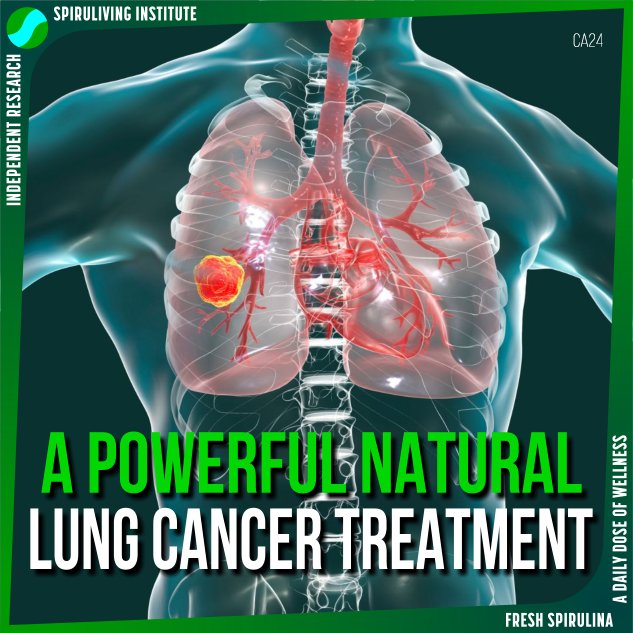
Preventive Properties of Spirulina Against Lung Cancer Cells Confirmed
QUICK SUMMARY
SPIRULINA
Spirulina has a high concentration of primary and secondary health-promoting metabolites.
It contains lipids (5–6%; e.g. γ-linolenic, linoleic, oleic, stearidonic, eicosapentaenoic, docosahexaenoic, and arachidonic acids), vitamins (B, D, E, ascorbic acid), minerals (primarily potassium but also calcium, chromium, copper, iron, magnesium, manganese, phosphorus, selenium, sodium, and zinc), and pigments (chlorophyll a, xanthophyll, β-carotene, zeaxanthin and phycobiliprotein complexes such as C-phycocyanin (C-PC) or allophycocyanin (APC)) that have recently been described to have anticancer activity.
LUNG CANCER
Lung cancer (LC) and respiratory tract carcinomas are the most common cancers and the main cause of cancer deaths among males and females in developed countries.
There are several factors associated with the development of lung cancer e.g. active and passive tobacco smoking, air pollution, and exposure to carcinogens such as radon, asbestos, arsenic, silica, and polycyclic aromatic hydrocarbons.
RESEARCH
In this study, the anticancer potential of a water extract of commercial spirulina product against the human non-small-cell lung carcinoma A549 cell line was evaluated.
After qualitative analysis, the effect of spirulina extract on cell viability, proliferation, and morphology and the influence on regulation of the lung cancer cell cycle, induction of apoptosis, and expression of cell cycle/apoptosis-related proteins was evaluated.
Our studies revealed that spirulina extract significantly reduced lung cancer cell viability and proliferation, which was accompanied by cell cycle inhibition in the G1 phase, induction of apoptosis, and prominent morphological changes.
CONCLUSION
In conclusion, the results obtained provide evidence of the anti-cancer activity of the commercial spirulina product against lung cancer cells and strongly support the knowledge of the chemopreventive properties of spirulina.
Comment from SpiruLiving Institute
1. This study confirms that water extracts from dried spirulina have enormous anti-cancer potential.
2. Most of the spirulina phytonutrients that exhibit powerful anti-cancer properties are damaged by powder drying and storage.
3. Fresh and fresh-frozen spirulina, recently becoming available in many countries, can contain 10x higher levels of powerful anti-cancer phytonutients including phycocyanin, beta-carotene, chlorophyl, zeaxanthin, ascorbic acid, in addition to 22 different phenols and 11 different flavonoids.
LEARN MORE
Anticancer effect of the water extract of a commercial Spirulina product on the human lung cancer A549 cell line
Biomedicine & Pharmacotherapy 2018
SLI-CA24
Spirulina Topics:





